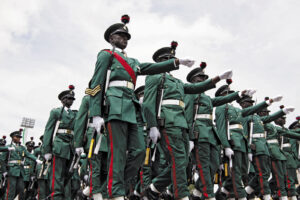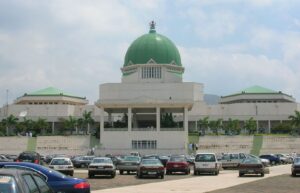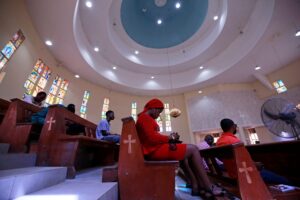Back to: Religion and National Value JSS2
Welcome to class!
In today’s class, we’re going to be talking about Nigeria as a Federation. I trust you will enjoy the class!
Nigeria as a Federation
Definitions
Federation is a system of government where power is divided between a central authority (the federal government) and smaller divisions (the states).

National Values are the core beliefs and principles that guide a nation’s behavior and interactions.
Religious Diversity is the existence of different religions within a society.
Tolerance is the respecting and accepting the beliefs and practices of others, even if different from your own.
Unity in Diversity is the idea that a nation can be strong and united despite having diverse cultures, religions, and ethnicities.
Nigeria’s Federal Structure

36 States and 1 Federal Capital Territory (FCT): Each state has its own government, laws, and cultural identity.
Shared Power: Some responsibilities are handled by the federal government (like defense and foreign affairs), while others are managed by the states (like education and healthcare).
Religion in Nigeria

Two Major Religions:
Christianity: Predominant in the south and some parts of central Nigeria.
Islam: Predominant in the north and some parts of central Nigeria.
Traditional Religions: Various indigenous belief systems practiced throughout the country.
Religious Tolerance and National Values
Importance of Tolerance:
- Peaceful Coexistence: Respecting other religions helps prevent conflict and violence.
- National Unity: Appreciating different beliefs strengthens the fabric of the nation.
Challenges to Tolerance:
- Religious Extremism: A small minority can misinterpret religion to promote violence.
- Misunderstandings: Lack of knowledge about other religions can lead to prejudice.
Promoting Tolerance in Nigeria:
– Education: Teaching about different religions in schools.
– Interfaith Dialogue: Encouraging discussions and cooperation between religious leaders.
– Government Policies: Laws that protect religious freedom and promote equal treatment.
National Values and Religion
Respect: Valuing the dignity and beliefs of others.
Patriotism: Loving and serving one’s country.
Integrity: Being honest and upholding moral principles.
Discipline: Obeying rules and maintaining order.
Religious Teachings: Many religions in Nigeria emphasize these values, making them important for both religious practice and national development.
We have come to the end of today’s class. I hope you enjoyed the class!
In the next class, we shall be discussing Relationship between Federal, State and Local Governments
In case you require further assistance or have any questions, feel free to ask in the comment section below, and trust us to respond as soon as possible. Cheers!
Classroom Activities
- How does the Nigerian constitution protect religious freedom?
- What are examples of religious tolerance in your community?
- How can students promote religious tolerance and national unity?
